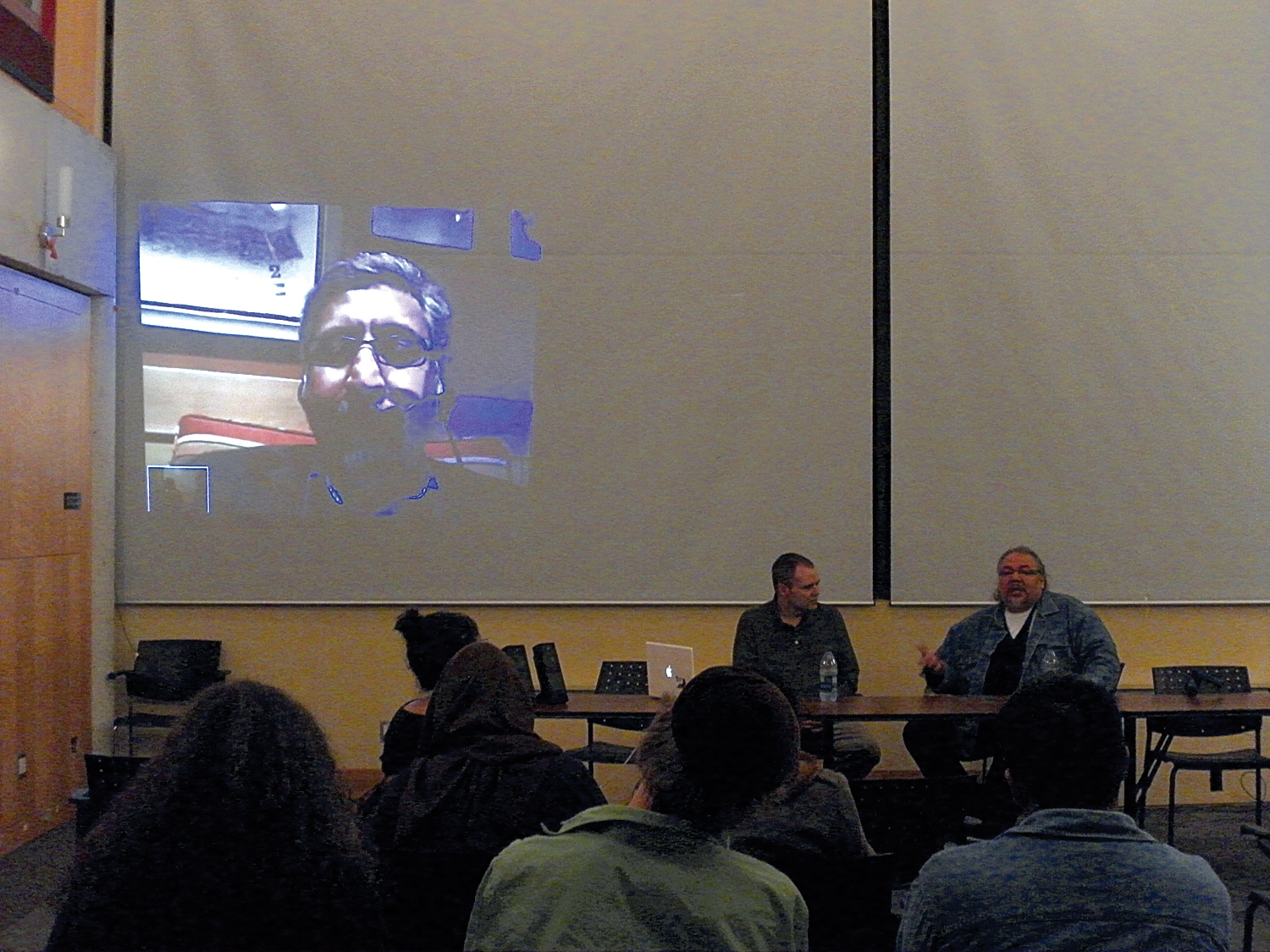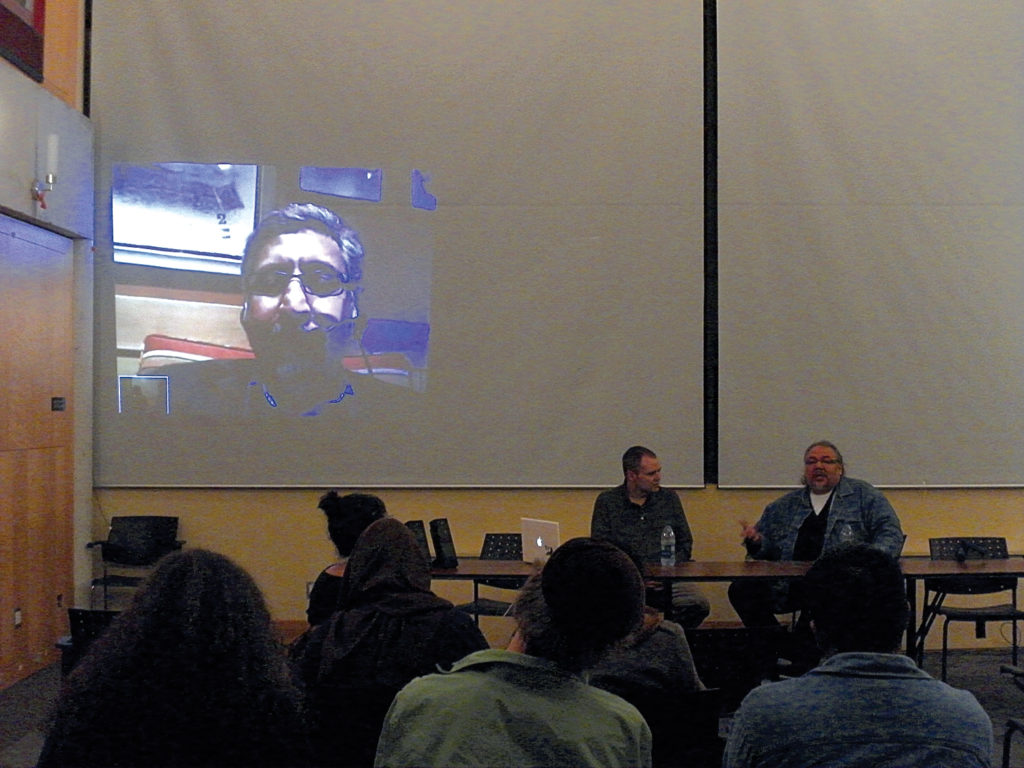Aboriginal filmmaker and artist speaks of resistance at OPIRG film festival
Megan Scribe
Contributor
On October 24, Bear Witness, artist and member of the Aboriginal community in Toronto, gave a talk kicking off the Rebels With A Cause film festival put on by OPIRG (Ontario Public Interest Research Group) at York. The event was populated by an even mix of both Aboriginal and non-Aboriginal York community members. Throughout the artist’s discussion, Bear shared with those in attendance the aims and aspirations of his work.
Bear Witness identifies himself as an urban Aboriginal. He conveys in his art the varying challenges Aboriginal people encounter in an urban landscape. As a Cree woman, I was touched by his speech.
Much of his footage is retrieved from existing mainstream media. When asked for his thoughts on copyright law, Bear offered the logic that people aren’t given a choice about what we are exposed to or bombarded by. There are certainly misrepresentations of Aboriginal people circulating throughout mainstream media
and the popular social imagination. With this abundance of misrepresentations, Bear sees an opportunity to not only expose these messages as dishonest, but also to transform these products into a loci of empowerment and cross-cultural dialogue.
Take for example, the poignant Woodcarver short film and audio track. Woodcarver depicts actual footage of a Seattle police officer who, unprovoked, shot and killed an Aboriginal man in 2010. The video loops a 10-second clip retrieved from the police officer’s cruiser with a translucent man running, taken from the feature film Thunder Heart, as a layer over the police footage. A startling audio remix accompanies this short film. The remix plays over dubstep beats while sampling traditional Pow Wow music.
Bear Witness expressed apprehension regarding the premiere of this video. He had originally created this short film with a non-Aboriginal audience in mind, to recognize and honour John T.
Williams as both an Aboriginal man and a person, asserting that these are not mutually exclusive.
As well, he wanted to address the issue of police brutality in
Aboriginal communities. Bear worried that premiering this short film to an Aboriginal audience would re-traumatize this group, as it is widely agreed by many Aboriginal people that John T. Williams was murdered.
In fact, it was extremely difficult to sit through. Feelings of discomfort, outrage, and sorrow were palpable throughout the auditorium. To me, this suggested that it is absolutely necessary to engage in these conversations of Aboriginal injustice cross-culturally. Quite often I am surprised to discover similar instances of oppression outside of my own cultural background and, at the same time, non-Aboriginal individuals discover a feature of Canadian society that is often suppressed at the detriment of Aboriginal communities.
The growing awareness of
Aboriginal issues and presence at the Keele campus of York is not being orchestrated by associates in offices. Rather, this is a result of collective efforts made at the ground level fuelled by earnest endeavors to engage in sincere dialogues.
Bear Witness’ discussion represented an opportunity to engage in collaborative efforts to dismantle pervasive misrepresentations of Aboriginal peoples. Opportunities to engage with cross-cultural issues of oppression from an Aboriginal perspective are going to be frequent this year.
ASAY (Aboriginal Students at York) hopes to sponsor Bear Witness’ return mid-November with
A Tribe Called Red, to throw down another Electric Pow Wow (complete with Bear’s VJing) as part of the Canadian Aboriginal Festival.



